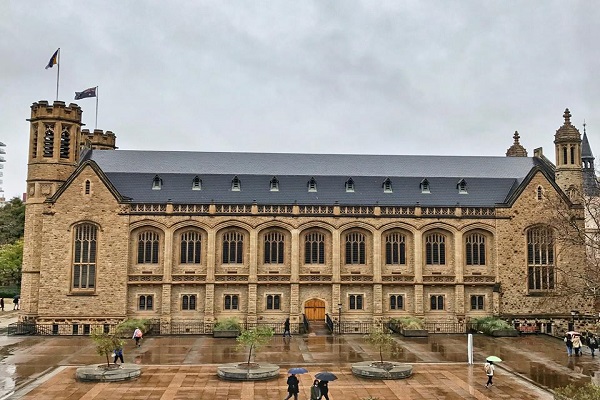University of Adelaide: Grants support further University diabetes research
Diabetes SA has awarded $200,000 in funding to researchers from the University of Adelaide to help with the early detection of diabetes in Aboriginal and Torres Strait Islander children and to help control blood glucose in people with type 2 diabetes.
Dr Lisa Nicholas and Associate Professor Richard Young from the University’s Adelaide Medical School have both received $100,000 from the Diabetes SA Research Grants Program.
Dr Lisa Nicholas leads the Epigenetics in Diabetes research group at the University of Adelaide. Her study will measure changes in a DNA chemical tag in the blood of Aboriginal and Torres Strait Islander children born to mothers with diabetes in pregnancy to determine how well it predicts future obesity and diabetes risk. It is important to identify risk markers in these children to facilitate early prevention of these conditions that will also provide information about the mechanisms behind how diabetes develops in these children.
Associate Professor Richard Young leads the Intestinal Nutrient Sensing group at the University of Adelaide, based at the South Australian Health and Medical Research Institute (SAHMRI). His study will supplement a blocker of gut ‘sweet detection’ in capsules over four weeks to people with type 2 diabetes, to test whether this slows glucose entry and improves control of blood glucose. This novel research has the potential to be a new and safe way to better manage blood glucose levels.
Associate Professor Richard Young smiles into the camera.
Associate Professor Richard Young leads the Intestinal Nutrient Sensing group at the University of Adelaide, based at the South Australian Health and Medical Research Institute (SAHMRI).
Diabetes SA Chief Executive Officer, Angelique Pasalidis said the two University of Adelaide researchers were selected by an esteemed panel of diabetes experts to receive $100,000 each for their diabetes research projects, announced to coincide with National Diabetes Week from 10-16 July.
“These research projects are vital to changing the future for people living with diabetes, and we are very much looking forward to providing regular progress reports and updates as their projects get underway,” Ms Pasalidis said.
“Diabetes SA is leading the way in driving ground-breaking research into diabetes detection, prevention, and management through their very own Research Grants Program. Since 2018, we have awarded nearly $800,000 to 11 research projects in South Australia.”
The awards will be presented to both researchers as part of the National Diabetes Week seminar at the Adelaide Convention Centre on Saturday, 16 July at 9.30am. The Diabetes SA Research Advisory Committee chair Lynn Bonython will present the awards.
“The University is home to many of South Australia’s leading researchers, and this support from Diabetes SA will help to make a real and positive impact in the community. Dr Nicholas and Associate Professor Young are leaders in their field who continually push the boundaries with their research and find solutions to important societal issues.”
Professor Anton Middelberg, Deputy Vice-Chancellor (Research) at the University of Adelaide.
Diabetes is the fastest growing chronic health condition in the world, with 415 million people estimated to be currently living in the disease. That number is expected to rise to 642 million people by 2040.
Professor Anton Middelberg, Deputy Vice-Chancellor (Research) at the University of Adelaide congratulated Dr Nicholas and Associate Professor Young for their innovative research, which has the potential to make significant change in the fight against diabetes.
“The University is home to many of South Australia’s leading researchers, and this support from Diabetes SA will help to make a real and positive impact in the community,” Professor Middelberg said.
“Dr Nicholas and Associate Professor Young are leaders in their field who continually push the boundaries with their research and find solutions to important societal issues.”

